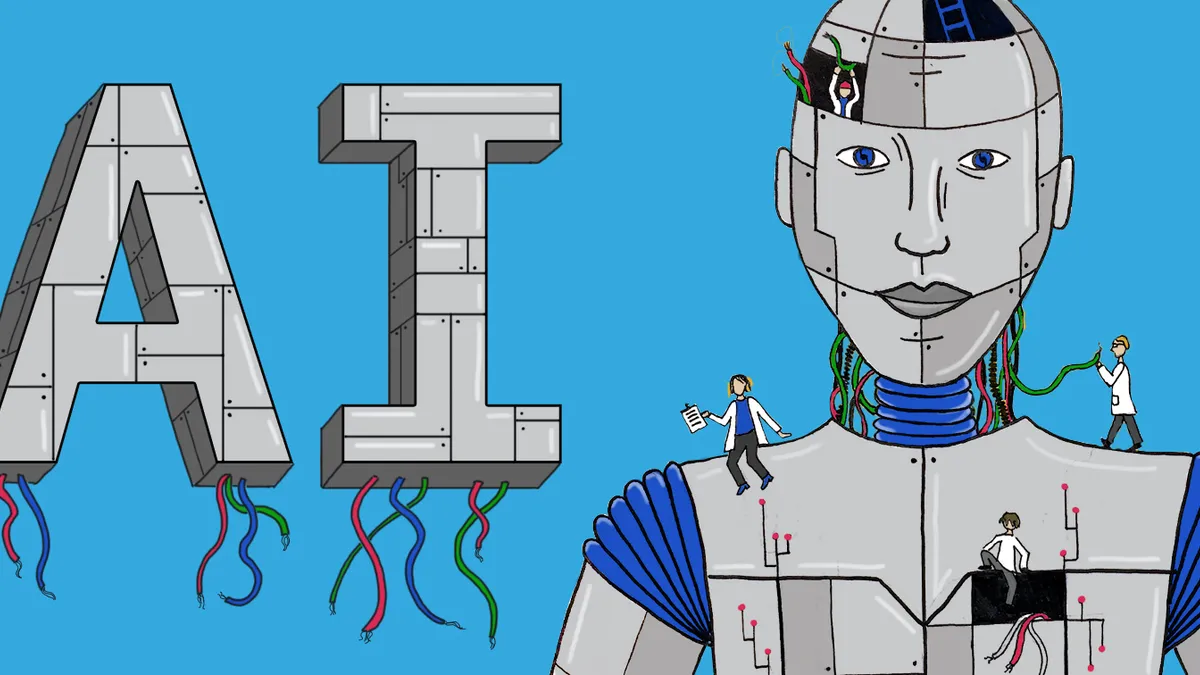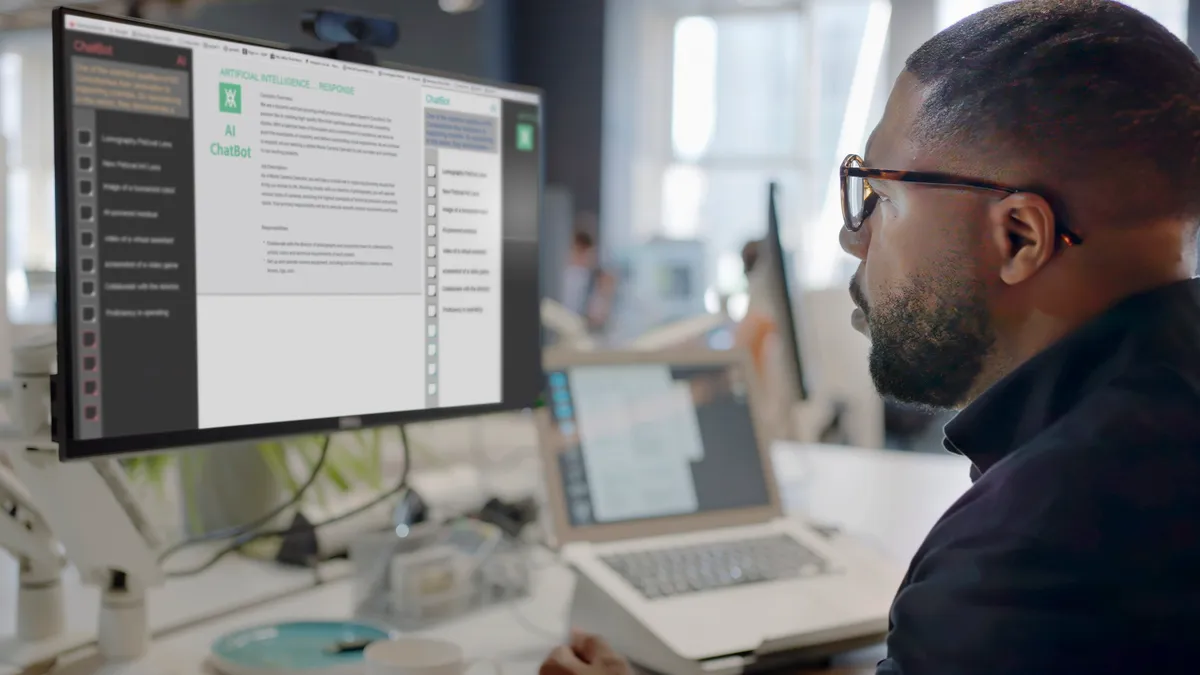Imagine a future for your enterprise where a digital, yet personal, artificial intelligence assistant knows who you are, anticipates what you want, organizes your life and reads and understands your email. Imagine having an AI-concierge who will suggest where to go for lunch, what meetings to take, brief you on the meeting content, help craft proposals and pitches, and decide which hotel to stay at during important client presentations.
It’s all possible with AI, according to Mark Minevich, advisor and board member for Comtrade Software.
"AI is poised to transform business solutions across a wide variety of sectors in more ways than you can imagine," said Minevich. "The digital solutions economy empowered by AI is the new business model of the future. AI is, and will continue to be, adopted by enterprises, allowing organizations to extract knowledge from all the data that is currently being generated."
AI was certainly one of the most talked about technologies of 2016. This year alone Amazon, IBM, Microsoft, Salesforce and several other tech giants released AI-powered applications, signaling that people are beginning to take note of how AI can significantly reduce workload and increase success.
There have also been a number staggering predictions about AI this year. Just a few examples:
- Tractica projects AI will be a $37 billion industry by 2025.
- AI-related hardware, software and services companies will jump from $8 billion in 2016 to $47 billion by 2020, according to IDC. On top of that, by the end of 2016, more than 80 of the world’s 100 largest enterprise software companies (by revenue) will have one or more integrated cognitive technologies in their product line and customer experiences.
- By 2018, there will be 6 billion AI connected devices and more than half of CMOs believe that AI’s impact on the business world will be more pivotal to the future of work than social media’s shake up a decade ago.
AI is being commoditized and democratized today due to a "perfect storm" of sorts, Minevich says.
"Major trends like the exponential growth in supercomputing, the massive growth in data and intense competition between deep-pocketed companies and startups ... have started delivering breakthroughs in artificial intelligence for organizations," he said.
The brass tax
All talk aside, what does AI mean for the enterprise in 2017?
Clearly, AI is a huge business opportunity. But if the predictions come true, a lot will need to happen in 2017, because there’s a huge gap between where most businesses are with AI today and where they are expected to be in the next 12 months. So the pivotal question is, how will it happen?
This year, expect to see increased democratization of AI technology to make it easier for companies to use and implement.
Shaun Ritchie, CEO and co-founder of Teem, predicts as businesses begin to better understand AI and how it can drive workplace efficiency in 2017, many will start with smaller applications that help streamline various aspects of work.
"Stolen conference rooms, unused tech tools and the like will be dated issues as AI will spur convenience, efficiency and productivity."

Shaun Ritchie
CEO and co-founder of Teem
For example, AI will be connected to existing technology such as meeting room booking and calendar-syncing platforms.
"Scheduling meetings, booking rooms and reserving resources is a job in and of itself and 80% of executives believe AI will eliminate this issue in the near future," said Ritchie. "Stolen conference rooms, unused tech tools and the like will be dated issues as AI will spur convenience, efficiency and productivity."
Mikhail Naumov, president and co-founder of DigitalGenius, predicts 2017 will see breakthroughs in customer service, sales and marketing first, with customer service most likely to lead the way.
"Enterprises realize the most practical applications of AI today are going to be in an area where they have a lot of historical data and where the nature of the interactions are fairly predictable," said Naumov. "That’s why customer service will emerge as one of the first practical, scalable applications of AI in the enterprise."
Evolve or perish?
Jim Barnett, CEO of Glint, says companies should expect to see more employees and department leaders accepting AI as part of their everyday lives over the next 12 months. And it’s critical that they do.
"Not only will it streamline work and boost productivity, AI will transform corporate America," said Barnett. "Businesses that fail to keep up with the rapid digital transformation will be left behind."
On the flip side, companies that struggle to adopt AI-powered solutions may be vulnerable to competitors’ out-performing them.
As Barnett points out, more than half of the names on the Fortune 500 list in 2000 are no longer there. While mergers, acquisitions and bankruptcies are the formal reasons given to their disappearance from the list, the root cause is failure to quickly adapt to digital business models.
"Companies that do not adapt applied AI will quickly perish or diminish in market size and value."

Mark Minevich
Advisor and board member for Comtrade Software
As deep learning, machine learning, and predictive and prescriptive intelligence becomes more mainstream, early adopters will see a boon in creativity, productivity and success in 2017, Barnett predicts.
Minevich agreed.
"Companies that do not adapt applied AI will quickly perish or diminish in market size and value," Minevich said. "The rapid emergence and evolution of new technologies means that new revenue opportunities will also emerge with unprecedented speed. Established brands will co-create the future business models with AI-powered startups. I believe that organizations should start preparing now for a future involving the immersion of AI, creating value around it, and learning how to best leverage it to their benefit."
The bottom line: the business models of the new digital future are going to be closely linked to artificial intelligence, industrialization and commoditization of cognition.
What next?
For companies that are just getting into AI, time is of the essence.
"2017 is the year companies need to start transitioning, otherwise they’ll get left behind," said Naumov.
Minevich suggests companies start by identifying a pilot project. They can then start to create an overall infrastructure cloud plan and working to build an open, collaborative culture of innovation within the enterprise and externally with an ecosystem of university research centers in the region, if possible.
Companies should also proceed carefully given all the AI hype. Naumov cautions companies looking to get into AI make sure they look past the hype for a partner that not only understands AI capabilities, but that also has experience working with and deploying to enterprise customers.





















